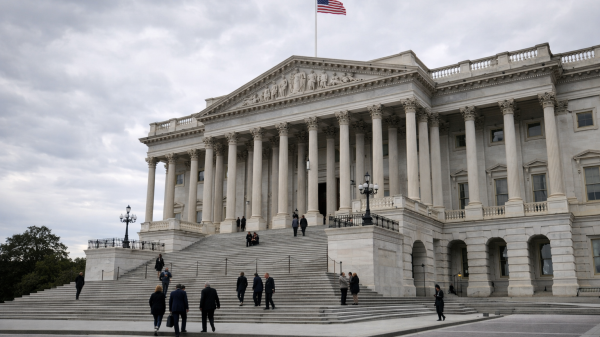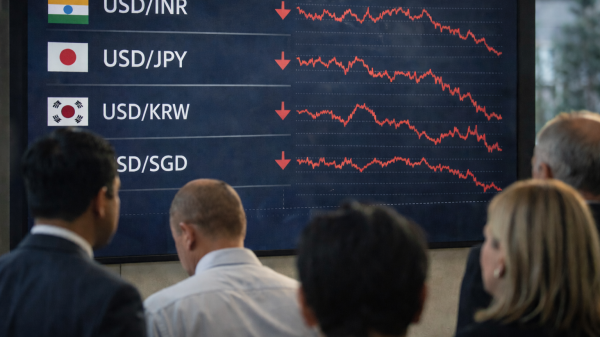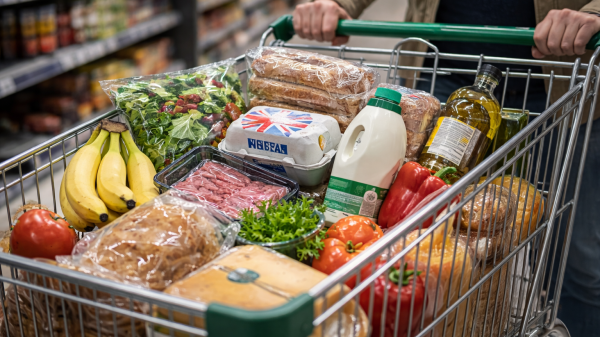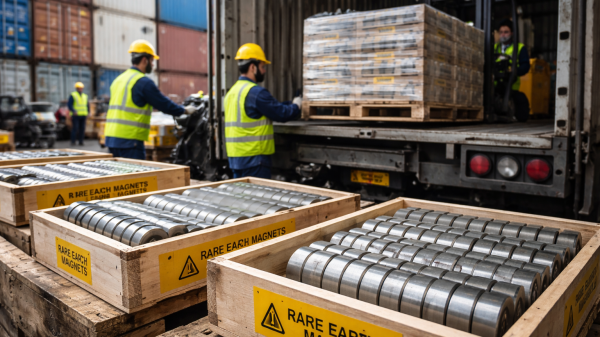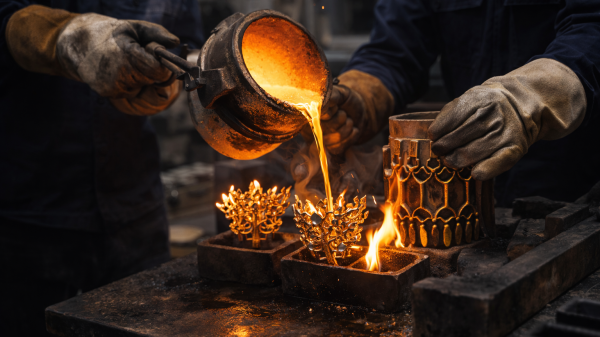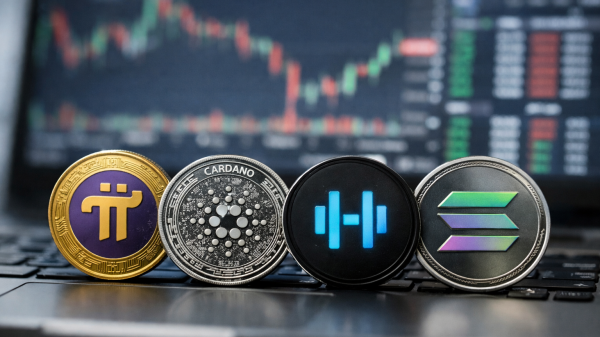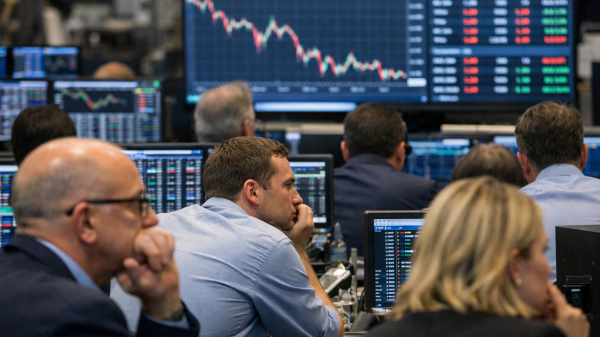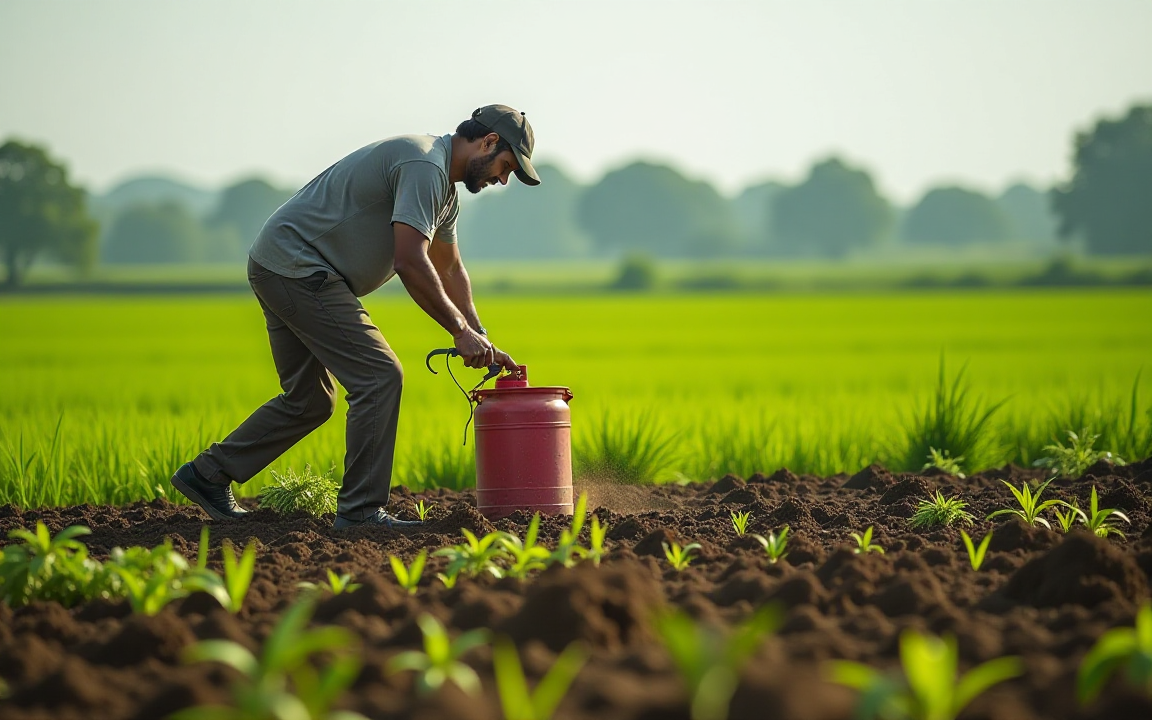Canada-based Brazil Potash is set to significantly impact the Brazilian fertiliser market with its plan to ramp up production, aiming to shield the country from geopolitical risks and fluctuating international prices.
The company’s Autazes project in Brazil, having received full permitting, seeks to address the country’s heavy reliance on imported potash, a critical nutrient for its massive agricultural sector.
Currently importing 98% of its potash, Brazil, a major agricultural exporter, faces vulnerability to supply chain disruptions and geopolitical tensions.
With an initial goal of covering 17% of Brazil’s import needs and plans to potentially reach 50% over the next decade, Brazil Potash intends to capitalise on its strategic location, which drastically reduces transportation costs compared to international competitors, according to Chief Executive Officer Matt Simpson.
In an interview with Invezz, Matt Simpson, the chief executive officer at Brazil Potash and Black Iron Inc, discussed the complexities of navigating leadership roles at both companies amidst geopolitical tensions and fluctuating market conditions.
Furthermore, the interview discusses the impact of the US.-Canada tariff situation on potash, highlighting the initial confusion and subsequent realisation that the USMCA effectively eliminates tariffs on Canadian potash.
As the global demand for potash continues to rise, Matt’s perspective sheds light on the future of the agricultural sector and the critical role that domestic production will play in ensuring food security.
Edited excerpts:
Autazes project
Invezz: Recently, the Brazil Potash’s Autazes project has received full permitting. How does that development affect Brazil’s agricultural sector and the company’s overview?
Brazil, as you may know, is one of the world’s largest exporters of agriculture, generating about $167 billion a year. However, the Achilles’ heel for the country is that they import 98% of their potash, which is one of the three main nutrients used to grow food, even though potentially the second biggest basin in the world is being developed by Brazil Potash right in their backyard.
When we look at the current situation in the potash market, it is highly concentrated between Canada, Russia, and Belarus. If one day Russian President Vladimir Putin decided he didn’t want to supply the world with potash, we would face a major food security issue.
Brazil, in particular, is the world’s largest importer, growing at a rate of about four times that of the rest of the world. Having a domestic supply protects them from geopolitical risks, port strikes, and rail strikes that have all occurred in the past year.
Invezz: Can you provide an update on the company’s fundraising efforts since the $50 million round in 2020? Are there ongoing discussions with global producers for partnerships or further acquisitions?
Since the regulation, we have completed an initial public offering on the New York Stock Exchange American and raised a further $30 million. There are many discussions right now with different groups regarding funding the construction of the project.
Strategies and cost advantages
Invezz: With your extensive experience in mining, design, and operations, particularly from your time at Rio Tinto or Hatch, what key lessons are you applying in Brazil Potash’s development?
We’re trying to strike a balance between the rigor that larger companies have in terms of ensuring proper governance and making investment decisions while still being a bit entrepreneurial.
Companies like Rio Tinto are great organisations, but they may take bureaucracy too far, which can lead to additional costs and delays.
On the other hand, many junior companies lack any rigor because they don’t come from a structured environment. I’m trying to take the beneficial aspects of structure and apply them while still keeping the company entrepreneurial.
Invezz: You previously discussed the cost advantage of domestic potash production in Brazil. How will the company leverage this advantage to compete in the global market?
Our plan is to sell 100% into Brazil because it is the world’s largest importer, holding 22% of the global market share. Our cost of mining and processing will be very similar to our competitors.
What really sets us apart is our location in Brazil, while everyone else is 12,000 to 20,000 kilometers away.
Our all-in cost to extract, process, and deliver to a farmer is about $130, which is less than the over $200 spent on transportation by our competitors. In fact, our competitors spend about two and a half times as much on transportation compared to what they spend on mining and processing.
Invezz: How do you see Brazil’s potash production shaping the global fertiliser market in the coming years?
Initially, we’re going to produce 2.2 million metric tons in a 63 million ton a year market that is growing at 2 million tons. I don’t think our production will have any significant impact on global prices. However, it will change the makeup of pricing within Brazil.
Import dependency
Invezz: Brazil is currently importing a lot of potash and is heavily dependent on it. Can you provide the percentage of imports that the Autazes project will cover?
With phase one, we will cover about 17% of Brazil’s current imports, but we could look to double and triple our output over time. Realistically, we could reach about half of Brazil’s current consumption with the domestic supply. However, Brazil would never be self-sufficient.
Invezz: How long will it take to cover half of Brazil’s current consumption?
Our first phase is 2.2 million tons, which is only 17% of Brazil’s needs. It would realistically take another five years after that to double our production, and probably another five years after that to reach half. So, it will take quite a while.
Invezz: What economic advantages will Brazil gain from this level of domestic potash production?
It’s all about logistics. Being in Brazil allows us to largely eliminate transportation costs, which are about two and a half times the cost of mining and processing for imported material.
From a farmer’s standpoint, this means they can cut out the middlemen and buy directly, saving at least $50 a ton by not having to cover the working capital costs associated with over 100 days of imported material.
Tariff impact
Invezz: Looking at the current state of the tariff war between the U.S. and Canada, how have businesses been impacted? Can you give us a picture of what’s happening in Canada against the backdrop of this trade war?
It’s been, frankly, a little bit confusing in Canada.
With potash, when President Trump initially announced the tariffs, he stated it would be a 25% tariff on potash. The American agricultural lobby reacted strongly because that would have meant a 25% increase in their costs to grow food, at least for a portion of it. Just three days after announcing the 25% tariff, Trump reduced it to 10% on potash due to this significant pushback.
Then, shortly after that, he mentioned that the US-Mexico-Canada Free Trade Agreement (USMCA) applies, which means that the tariff on potash is actually 0%.
So, through all this confusion, he still claims it’s 10% for potash that isn’t covered under the USMCA. However, there is no potash imported from another country into Canada that would then flow into the U.S.; all the potash is produced in Canada and then sent to the U.S.
In a nutshell, all that confusion indicates that there has been no direct impact of tariffs on potash. However, globally, prices have risen quite a bit since the start of the year and since those tariffs were announced. This increase is partly due to fears surrounding the tariffs and also because of the production issues faced by Belarusian and Russian producers.
When you look at the war in Ukraine, for instance, when Putin first invaded Ukraine back in February 2022, the price of potash literally doubled within weeks of that invasion—it’s like a vertical spike. This is largely because Russia and Belarus supply about 42% of the world’s potash. Prices did come back down, mainly because potash was never sanctioned; we all need to eat, so it was never affected by those sanctions.
Invezz: How do you balance your leadership roles at Black Iron and Brazil Potash? Are there any synergies between both companies and their strategies?
Coincidentally, I was primarily focused on running Black Iron when Russia invaded the eastern part of Ukraine. Unfortunately, that situation put Black Iron on hold around 2014 due to the uncertainty regarding how far Russia would push into the country. At that time, an opportunity arose to start running Brazil Potash.
It was feasible to manage both projects because things were slowing down in Ukraine due to the uncertainty, while potash prices were heating up. Then, around 2017-2018, we saw a reversal, and potash prices started to decline, which reduced some of the workload on Brazil Potash.
Interestingly, the two projects have acted as a sort of arbitrage against each other over time, allowing me to switch back and forth between them.
I do expect that there will be peace in Ukraine at some point, hopefully in the near future. However, managing both projects will become much trickier once that happens. It’s still early to say when we might see peace.
The post Interview: Strategic location gives Brazil Potash cost advantage in domestic fertiliser market, says CEO Matt Simpson appeared first on Invezz








